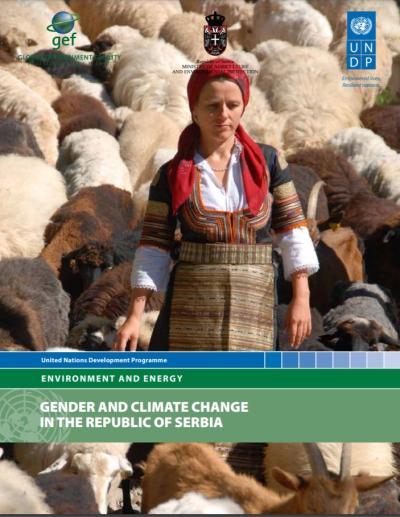
Women and men have different vulnerabilities to climate change impacts on food security, agricultural productivity, livelihood, water availability, sanitation, health and energy, among others. Existing gender inequalities, such as limited access to natural resources and productive assets including land and finance and to household and community decision-making constrain their ability to adapt to and cope with climate change. There is no one-size-fits-all approach for ensuring fair and equitable treatment for women and men.
This paper - published by UNDP Serbia, with the financial support of the GLobal Environment Facility, in November 2015 - supports the process of mainstreaming gender into processes and financing related to addressing climate change. To that end, the paper first looks at relevant international and national policy frameworks, then at “why gender matters” in the context of climate change, and the ways in which gender interacts with climate change adaptation and mitigation efforts in the Republic of Serbia. Finally, drawing on the lessons learned from these reviews, the paper presents a series of recommendations for effectively integrating gender into policies and initiatives in the Republic of Serbia.
